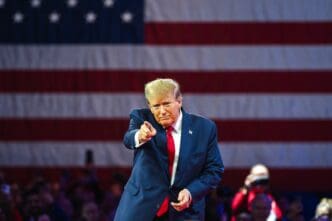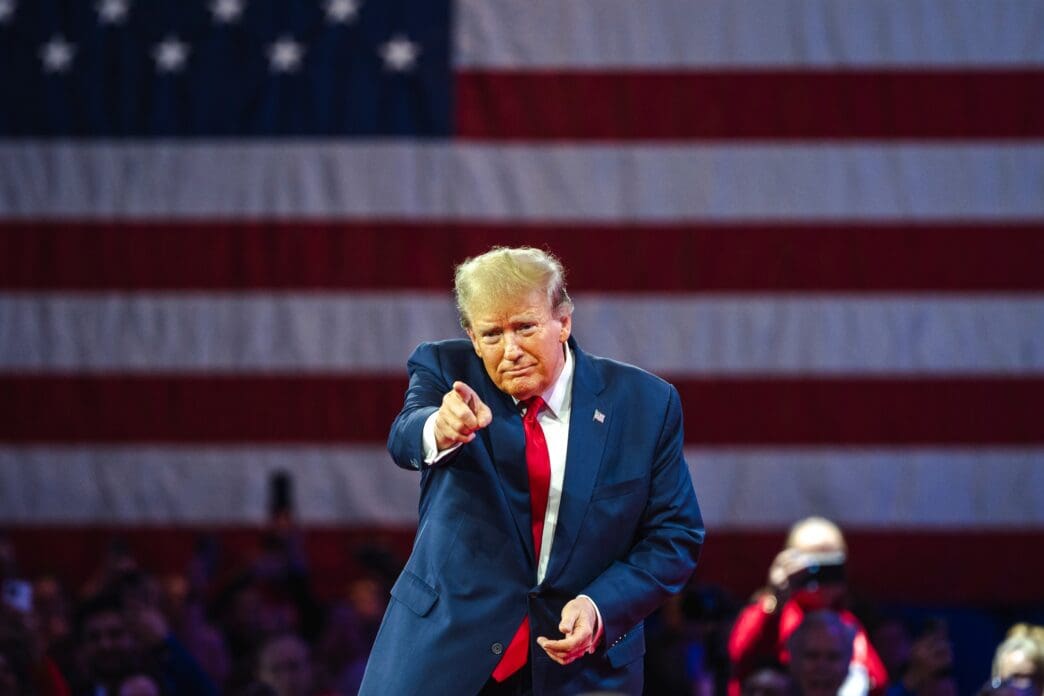Executive Summary
- President Donald Trump continues to fuel speculation about a potential third term through ambiguous statements and by highlighting strong poll numbers, despite constitutional prohibitions.
- The 22nd Amendment explicitly bars any person from being elected President more than twice, making a third term for Trump constitutionally impossible without highly unlikely amendment changes.
- Allies like Steve Bannon openly discuss plans for Trump to remain in office, while commentators suggest Trump’s ambiguity is a tactic, and the Supreme Court has affirmed the 22nd Amendment’s clear language against a third term.
The Story So Far
- The ongoing speculation about a potential third term for Donald Trump is fueled by his own ambiguous statements and the outspoken advocacy of allies, despite the explicit constitutional prohibition of the 22nd Amendment, which limits a president to two terms. This persistent discussion is often interpreted as a political strategy by Trump to maintain relevance and engage his opponents.
Why This Matters
- Donald Trump’s continued ambiguous statements regarding a potential third term, coupled with allies’ public discussions about keeping him in power, fuel ongoing political discourse and highlight a potential challenge to established constitutional norms, despite the clear prohibition of a third term by the 22nd Amendment and the likelihood of any such attempt facing Supreme Court scrutiny.
Who Thinks What?
- Donald Trump maintains an ambiguous stance on a potential third term, stating he hasn’t “really thought about it” while highlighting his strong poll numbers, though he rules out running as Vice President to ascend to the presidency.
- Allies, such as Steve Bannon, openly discuss and advocate for Trump remaining in office beyond two terms, asserting that he “is going to be president in ‘28.”
- The U.S. Constitution, specifically the 22nd Amendment, explicitly prohibits a president from being elected more than twice, a fact affirmed by legal experts and Justice Amy Coney Barrett.
President Donald Trump has continued to fuel speculation regarding a potential third term, making ambiguous statements that contrast sharply with constitutional prohibitions and historical precedent. His remarks, alongside claims from allies about plans to keep him in power beyond two terms, underscore an ongoing debate about the future of his political involvement.
When questioned by reporters about a third term, Trump stated, “I haven’t really thought about it,” while also highlighting his strong poll numbers. He mentioned potential successors like Vice President JD Vance and Secretary of State Marco Rubio but added, “I have the best poll numbers I’ve ever had.”
This stance differs significantly from the definitive statement made by Lyndon B. Johnson in 1968, who explicitly declared he would “not seek, and I will not accept, the nomination of my party for another term.” Johnson’s clear withdrawal reshaped that year’s presidential election.
While leaving the door open to a third term, Trump did rule out one proposed constitutional circumvention: running as Vice President to later ascend to the presidency. He described this maneuver as “too cute” and “not right,” though he asserted its legal possibility.
Despite the constitutional barriers, figures like Steve Bannon, a committed ally without an official White House role, have openly discussed plans to keep Trump in office. Bannon, who previously advocated for Trump to remain in power after the 2020 election, stated, “Trump is going to be president in ‘28 and people just ought to get accommodated with that.”
Constitutional Barriers
The 22nd Amendment to the U.S. Constitution, ratified after Franklin D. Roosevelt’s four terms, clearly states that “No person shall be elected to the office of the President more than twice.” This amendment explicitly bars a two-term president from seeking re-election.
The idea of Trump serving as Vice President and then ascending also faces challenges under the 12th Amendment, which stipulates that “no person constitutionally ineligible to the office of President shall be eligible to that of Vice-President of the United States.” Amending the 22nd Amendment would require the assent of three-quarters of U.S. states, a prospect considered highly unlikely in the current political climate.
Further complicating any future electoral bids are questions surrounding Trump’s age and health. He will be 82 when his second term concludes in January 2029. He recently stated he had undergone an MRI and cognitive tests, reporting that he is in great health, though detailed information was not shared.
Political Interpretations
Some political commentators, such as CNN senior political commentator Scott Jennings, suggest that Trump’s ambiguous statements are a tactic to “troll his opponents” and maintain relevance, rather than a serious intention to pursue an unconstitutional third term. Trump himself responded ambiguously when asked directly if he was ruling out a third term, stating, “You’ll have to tell me.”
Should an attempt to circumvent term limits somehow progress, it would almost certainly reach the Supreme Court. Justice Amy Coney Barrett, one of Trump’s nominees, has publicly affirmed the clear language of the 22nd Amendment, stating earlier this year, “That’s what the amendment says,” regarding its prohibition of a third term.
Outlook
The persistent discussion surrounding a potential third term for Donald Trump, fueled by his own equivocal remarks and the proactive advocacy of allies, continues to be a significant point of political discourse, despite the explicit constitutional prohibitions.








